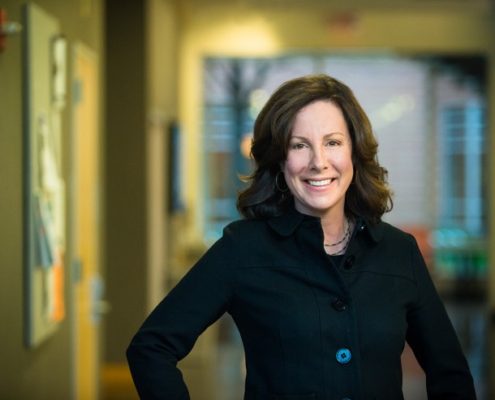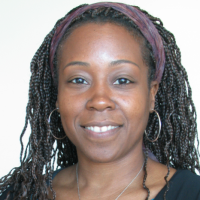CCIS Dean’s Own Path Spurs Drive to Increase Student Opportunities
Originally Posted on News@Northeastern
Brodley is the dean of the College of Computer and Information Science, and her career path would likely have been quite different had she not seized the moment and taken this very same advice in college. During her sophomore year at McGill University, a friend suggested she would enjoy a programming course. That course inspired her to change her major from economics to a double major in math and computer science. “I fell head over heels in love with it,” Brodley recalls.
The Obama administration has highlighted the importance of increasing participation of women and underrepresented groups in STEM fields, and described computer science in particular as a “basic requisite for 21st-century jobs.” In a February 2016 factsheet the White House pointed to economic projections that indicate there will be 2.4 million unfilled STEM jobs by 2018, and that diversity challenges compound this employment gap; women and minorities comprise 70 percent of college students but less than 45 percent of STEM degrees.
A hallmark of her career
Leading efforts to increase opportunities for students—particularly women and underrepresented groups—to pursue degrees in computer science and STEM fields has been a hallmark of Brodley’s career. She spent a decade, including three years as co-chair, on the Computing Research Association’s Committee on the Status of Women, whose work focuses on increasing participation of women across the research pipeline and fostering their growth to become leaders in industry and academia.
At Northeastern there is a growing interest in STEM fields among women, particularly in CCIS where applications for fall 2016 increased 18 percent overall and 33 percent among female students.
Brodley has led the development of a master’s degree in computer science through ALIGN, a program that offers master’s degrees in tracks designed for professionals who want to transition into high-growth industries such as computer science and other STEM fields. She has also overseen the development of the CCIS Meaningful Minors program—which allows students to personalize a minor in computer or information science to match their individual academic needs and interests—as well as highly interdisciplinary bachelor’s and master’s degree programs in data science.
The college’s Fundamentals of Computer Science intro course is structured to introduce novice programmers to the systematic and explicit design of programs and, at the same time, expose students with prior programming experience to design. As Brodley notes, prior programming experience does not automatically correlate with academic success because the step-by-step requirements for explicit design can easily be followed by novices and many students with prior experience are unaccustomed to systematic design. All students begin the program with the same introductory course sequence, she says, thus removing barriers to entry for students without prior experience.
Career achievements honored
On Tuesday, Brodley will be honored at a National Center for Women and Information Technology summit with the NCWIT Harrold and Notkin Research and Graduate Mentoring Award.
Brodley says she personally knew both Mary Jean Harrold and David Notkin, who she described as fantastic researchers and advocates for their students. “I’m honored to be receiving this award,” Brodley says.
The award recognizes faculty members who combine outstanding research accomplishments with excellence in graduate mentoring, as well as those who advocate for recruiting, encouraging, and promoting women and minorities in computing fields at both a local and national level.
Brodley’s research scholarship is in machine learning and data mining, and she is a fellow of the Association for the Advancement of Artificial Intelligence. Her interdisciplinary machine learning research has led to advances not only in computer and information science, but in many other areas including remote sensing, neuroscience, digital libraries, and astrophysics.
Why mentors matter
Brodley views mentorship as a critical part of her career, as well. She learned how to mentor from her own mentor, Paul E. Utgoff, a computer science professor at the University of Massachusetts Amherst. He died of cancer in 2008.
“I had the most wonderful mentor,” Brodley said of Utgoff, whose voice she says she can still hear in her head when she writes, remembering the way he would ask questions meant to improve her writing. “He was able to mentor me in a way where instead of having the ideas for me in my research, he could lead me to the place where I could have the ideas for myself. That’s hard to do, and I’ve tried to emulate this. I’ve always wanted to make sure my grad students felt like they could not just do research but they could lead research.”
She adds, “There’s a particular way in which you can mentor in order to get students to really take ownership of their own research, and not look to you for the ideas.”






